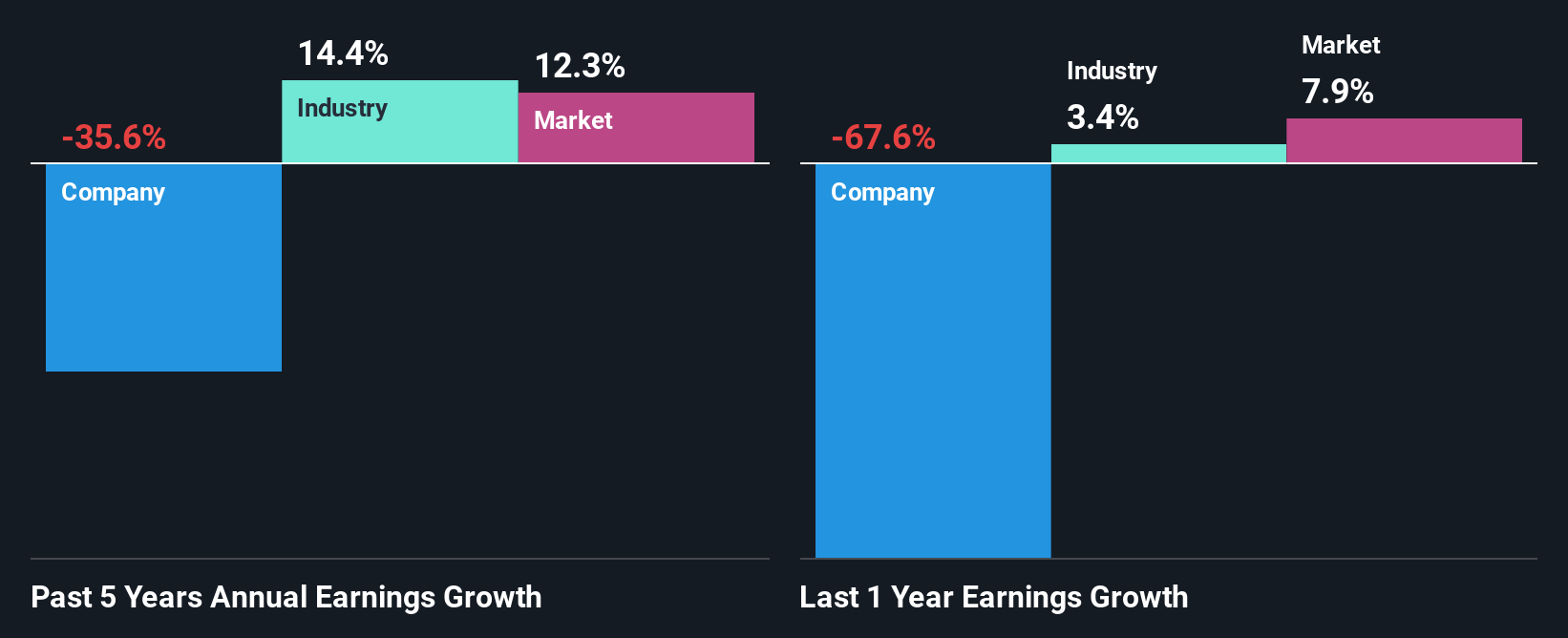Tokyo Koki (TSE:7719) has had a great run on the share market with its stock up by a significant 24% over the last three months. But the company’s key financial indicators appear to be differing across the board and that makes us question whether or not the company’s current share price momentum can be maintained. Specifically, we decided to study Tokyo Koki’s ROE in this article.
ROE or return on equity is a useful tool to assess how effectively a company can generate returns on the investment it received from its shareholders. Put another way, it reveals the company’s success at turning shareholder investments into profits.
AI is about to change healthcare. These 20 stocks are working on everything from early diagnostics to drug discovery. The best part – they are all under $10bn in marketcap – there is still time to get in early.
How Do You Calculate Return On Equity?
Return on equity can be calculated by using the formula:
Return on Equity = Net Profit (from continuing operations) ÷ Shareholders’ Equity
So, based on the above formula, the ROE for Tokyo Koki is:
2.6% = JP¥45m ÷ JP¥1.8b (Based on the trailing twelve months to May 2025).
The ‘return’ refers to a company’s earnings over the last year. So, this means that for every ¥1 of its shareholder’s investments, the company generates a profit of ¥0.03.
View our latest analysis for Tokyo Koki
Why Is ROE Important For Earnings Growth?
So far, we’ve learned that ROE is a measure of a company’s profitability. Depending on how much of these profits the company reinvests or “retains”, and how effectively it does so, we are then able to assess a company’s earnings growth potential. Assuming everything else remains unchanged, the higher the ROE and profit retention, the higher the growth rate of a company compared to companies that don’t necessarily bear these characteristics.
Tokyo Koki’s Earnings Growth And 2.6% ROE
When you first look at it, Tokyo Koki’s ROE doesn’t look that attractive. Next, when compared to the average industry ROE of 8.0%, the company’s ROE leaves us feeling even less enthusiastic. For this reason, Tokyo Koki’s five year net income decline of 36% is not surprising given its lower ROE. We reckon that there could also be other factors at play here. Such as – low earnings retention or poor allocation of capital.
So, as a next step, we compared Tokyo Koki’s performance against the industry and were disappointed to discover that while the company has been shrinking its earnings, the industry has been growing its earnings at a rate of 14% over the last few years.
 TSE:7719 Past Earnings Growth October 10th 2025
TSE:7719 Past Earnings Growth October 10th 2025
Earnings growth is an important metric to consider when valuing a stock. It’s important for an investor to know whether the market has priced in the company’s expected earnings growth (or decline). This then helps them determine if the stock is placed for a bright or bleak future. One good indicator of expected earnings growth is the P/E ratio which determines the price the market is willing to pay for a stock based on its earnings prospects. So, you may want to check if Tokyo Koki is trading on a high P/E or a low P/E, relative to its industry.
Is Tokyo Koki Using Its Retained Earnings Effectively?
Tokyo Koki doesn’t pay any regular dividends, meaning that potentially all of its profits are being reinvested in the business, which doesn’t explain why the company’s earnings have shrunk if it is retaining all of its profits. So there could be some other explanations in that regard. For instance, the company’s business may be deteriorating.
Summary
In total, we’re a bit ambivalent about Tokyo Koki’s performance. While the company does have a high rate of profit retention, its low rate of return is probably hampering its earnings growth. Wrapping up, we would proceed with caution with this company and one way of doing that would be to look at the risk profile of the business. Our risks dashboard would have the 5 risks we have identified for Tokyo Koki.
Valuation is complex, but we’re here to simplify it.
Discover if Tokyo Koki might be undervalued or overvalued with our detailed analysis, featuring fair value estimates, potential risks, dividends, insider trades, and its financial condition.
Access Free Analysis
Have feedback on this article? Concerned about the content? Get in touch with us directly. Alternatively, email editorial-team (at) simplywallst.com.
This article by Simply Wall St is general in nature. We provide commentary based on historical data and analyst forecasts only using an unbiased methodology and our articles are not intended to be financial advice. It does not constitute a recommendation to buy or sell any stock, and does not take account of your objectives, or your financial situation. We aim to bring you long-term focused analysis driven by fundamental data. Note that our analysis may not factor in the latest price-sensitive company announcements or qualitative material. Simply Wall St has no position in any stocks mentioned.


AloJapan.com